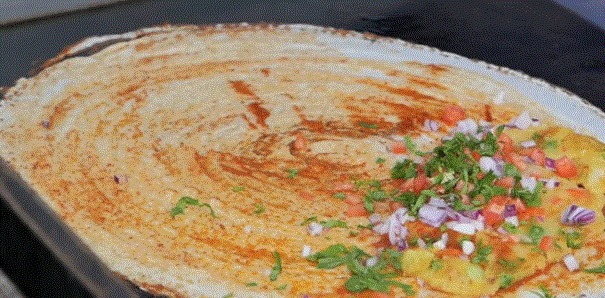Food insecurity has become one of the major national problems in Pakistan. Food security is defined as the availability of food and one's access to it. A household is considered food secure when its occupants do not live in hunger or fear of starvation. According to World Food Summit of 1996 food security exists "when all people at all times have access to sufficient, safe, nutritious food to maintain a healthy and active life".
On the other hand, Food insecurity is when a person is unable to obtain a sufficient amount of healthy food on a day-to-day basis. As a result of food insecurity, people suffer from chronic hunger and poor nutrition, and are, therefore, less likely to have healthy and productive lives.
Now that we know what food insecurity is, what do you think is the cause behind it? It is widely agreed upon that the main cause of food insecurity is poverty. Poverty makes it very difficult for people to grow their own food and also to buy enough food. Currently, it is estimated that over 1.5 billion people live on less than $1 a day, and are, therefore, unable to buy enough food to keep them healthy. Due to the low-income levels in many areas, it is also not possible for people to grow their own food because they do not have money to invest in agriculture. Similar is the situation in Pakistan.
The report given by the United Nations in 2008 revealed that high food prices have significantly worsened food security in PAKISTAN. In 2005-06 the food insecure population has increased by 12 million.The NATIONAL NUTRITION SURVEY 2011 reveals that SINDH as the province with the highest proportion (72%) of the households are in secure, then 59% in PUNJAB and 28.2% in KPK. Pakistan is at 77th number around the world in food security score.(2018). At National level about 58-60% of the households are food insecure.
Pakistan is facing food insecurity due to insufficient agricultural production, political instability and corruption. Lack of purchasing power and access to adequate food supply for many of the poor people is the key reason for the country’s low level of food security. Hunger and malnutrition continue to prevail because of poor distribution of resources and lower purchasing power of the poor. Sufficient quantities of food at the national level and reduced poverty alone do not equal food security and good nutrition for all.
Poor Governance also affects food security. A shortfall in investment has led to limited innovation in the agricultural sector. Old farming methods and inefficient use of resources have contributed to poor productivity. Two-thirds of the country’s population and 80 percent of the poor live in rural areas. Lack of development in agricultural infrastructure and advancement in farming methods has made agricultural production difficult and inefficient. Fresh Global Hunger Index (GHI) 2017, shows that Pakistan remains at the lowest level on 106th place among 119 developing countries.
Using a questionnaire and personal visit to a village, the findings and observations revealed that generally, hotels there are quite aware of hygienic conditions, which have to be followed while handling and preparing foods. However, it was found that the majority of them were not implementing their knowledge into practice and still say that their products were of relatively low risk to the consumers. Food quality is not considered even in 5 star hotels. Left over meals were found there, eatables being used used were without date of manufacturing and expiry.And importantly there was Poor drainage system.
There are a few agencies working in Pakistan for betterment of food quality. PFA (a provincial level agency) is one of them. It has taken many actions.It sealed Punjab Bakery in Gowalmandi due to selling of expired items, Imposed heavy fine on Italian Pizza on Raiwind Road because of unhygienic food. PFA Fined Pearl Continental Hotel and Avari Hotel Lahore for their poor kitchen management and food quality.
In order to overcome this we need to take some steps. Food stamps should be made obligatory.
There should be some tax policies that support low income families.Job opportunities should be increased. There should be transportation of food to remote areas.There should be measures to increase food production and resources. Whenever any restaurant is caught in any of unhygienic food or any of Low food standards not any strict action is taken against them. We should also improve and focus on our FOOD AUTHORITIES to help them secure the food and lives of the citizens. We must take strict measures so that the production unit and the members involved in this production unit are banned for lifetime, so that they can never violate the food standards. This all would certainly help Pakistan, in order to attain Food Security. Else Pakistan have to bear the price, if appropriate measures won’t be taken at present. Minister for National food Security and Research said “food availability will ensured through increase in production of food items.”
The authors Chaudry Muhammad Bilal, M. Hamza Shakeel, Haseeb Rashid and HuzaifaSohail students of FAST University Lahore


